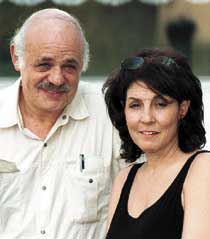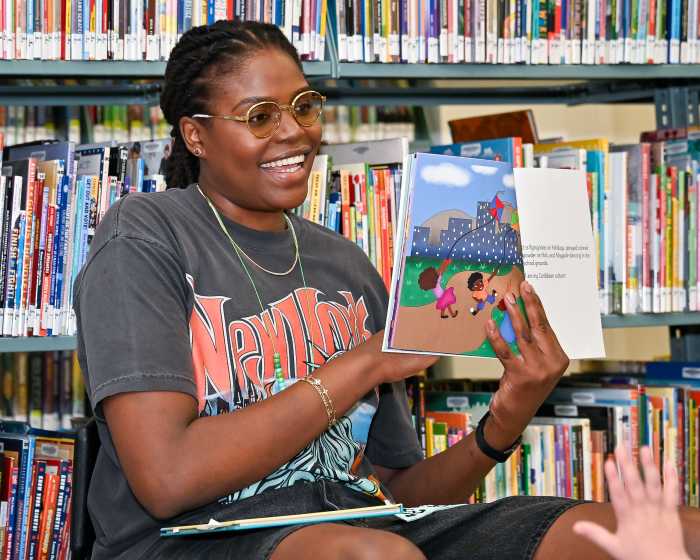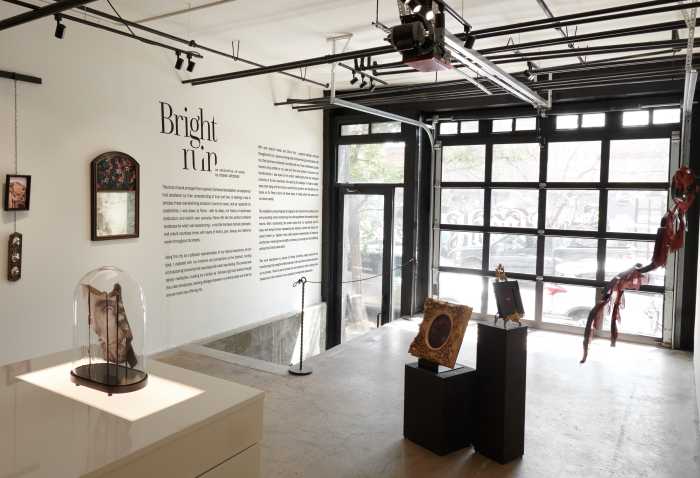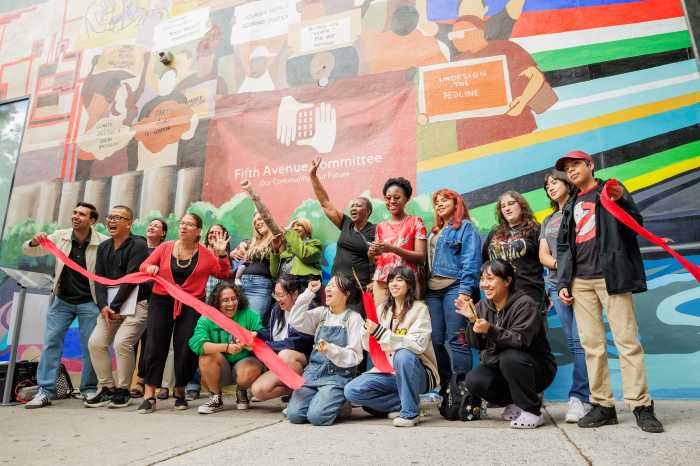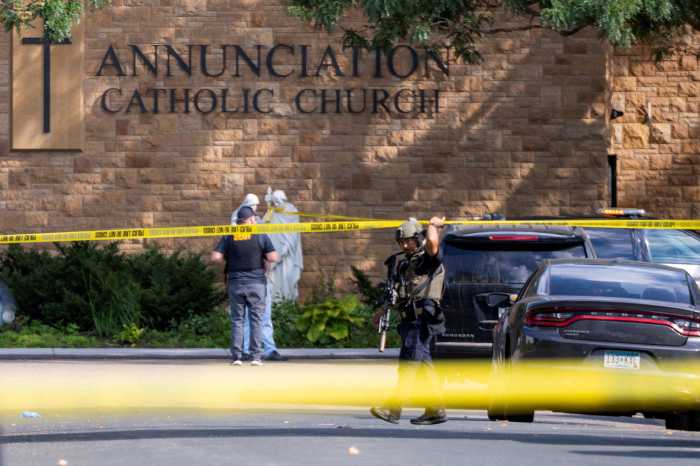Beginning Thursday, BAMcinematek, the BAM
Rose Cinemas’ repertory program, will present the First Brooklyn
Jewish Film Festival. Films old and new that explore Jewish history,
and celebrate Jewish culture are included in the series, which
runs through April 29.
The festival began as a mini-event at the
Temple Beth Elohim in Park Slope. According to Paul Rothman,
who has organized the film festival along with Jackie Lew, Rabbi
Gerald Weider suggested a small festival of Jewish-themed films
for the congregation.
Rothman and Lew’s result was so successful
that they decided to spread the wealth. With BAM’s enthusiastic
participation, along with unpaid volunteers from the community,
Rothman and his selection committee have found films of various
genres and time periods.
"Yes, we’ll show new releases,"
he said, "but in the spirit of the cinematheque, we’ll show
diverse films and older films, on the big screen – as they’re
meant to be seen."
Opening the festival on Thursday at 7:30
pm is "Kippur" (2000), Israeli filmmaker Amos Gitai’s
devastating look at war from the front lines.
Inspired by his own experiences during
the Yom Kippur War in 1973, the film follows the exploits of
two soldiers who, unable to hook up with their own unit, wind
up traveling through the battle-scarred landscape with a medical
unit. There is a surreal atmosphere here, but also shocking realism
that speaks not only to that particular war in that particular
place and time, but also to the horrors of war in general.
War War II and the Holocaust are the subjects
of a number of films in the festival. It can be extremely difficult,
if not impossible, to capture the enormity of the Holocaust in
an artistic medium, but many films in the festival come close,
and even succeed, among them Marcel Ophuls’ classic documentary,
"The Sorrow and the Pity" (Saturday, April 28 at 2
pm) – required viewing for all. In this four-and-a-half hour
1971 doc, Ophuls deconstructs the myth of the Resistance and
explores the complicity of many of the French – scandalous behavior
that still has repercussions throughout that country.
Taking a long view of the Holocaust is
Norwegian director Alexander Rosler’s "Mendel" (Sunday,
April 29 at 7:30 pm), the story of a young emigre dealing with
a new world. It is a provocative study of the second generation
of survivors and their search for identity. This Norwegian film
(subtitled in English) is part of the closing night presentation.
One of the best discoveries of the festival
is "The Optimists" (Saturday, April 28 at 7 pm). Filmmakers
Lisa and Jacky Comforti follow their family’s ordeal in Bulgaria
during World War II, and in so doing tell the unknown story –
at least to this viewer – of the Christian-Bulgarian population
who supported their Jewish friends, defended the homes of their
Jewish neighbors, hid them when necessary and literally saved
Bulgaria’s Sephardic Jews from extermination.
The title "The Optimists" was
the name of the filmmakers’ grandfather’s jazz group before the
war, but it is also the perfect description of what turned out
to be a country full of life-savers. (A Q&A with the filmmakers
will follow the screening.) Interviews with family members and
other survivors, along with family photos and archival footage
put an incredibly personal perspective on this little-known event.
One of the survivors, now a rabbi in Israel,
sums it up. "To be Bulgarian" he says, "is to
be a mensch."
Other films look at the Jewish experience
throughout the world.
Canadian sociologist and filmmaker Coleman
Romalis’ documentary "Emma Goldman: The Anarchist Guest"
(Friday, April 27 at 6:30 pm) has little bite to it, but it does
manage to bring some of the spirit of this 20th-century radical
to life, focusing on her years in Canada, where she lived after
being thrown out of the United States. A Q&A with Romalis
will follow the screening.
A special program – with a lot of bite
to it – is dedicated to the work of Brooklyn-born filmmaker Jay
Rosenblatt (Sunday, April 29 at 5:15 pm), whose short films take
on universal and historical topics with a personal perspective.
Especially daring is "Human Remains,"
a half-hour long film that merges archival footage with messages
from the graves of some of history’s more despicable creatures,
including Hitler, Mussolini and Stalin. There is an eerie quality
to this, and hearing them talk about their general health and
hobbies sends chills up one’s spine.
Rosenblatt’s newest work in the program
is the short film "King of the Jews." With a dream-like
visual style that has a confessional aspect to it, Rosenblatt
considers his own youth, when he made the discovery that Jesus
was a Jew. As a Jewish-American boy he tries to reconcile that
with the anti-Semitism he saw all around him. His own home movies,
showing him as a little boy, mix with Hollywood images of the
crucifixion and give us a very personal perspective on his attempts
to make sense of it all.
After the festival, Rothman, himself a
filmmaker, hopes to have monthly screenings at BAM as well as
a second edition of the festival next year.
Having grown from a grassroots effort in
Brooklyn, and with a carefully considered balance of documentaries
and feature films, the festival should have a widespread appeal
and the organizers look to build an audience from event to event.
Based on the selections in this first festival,
the future looks optimistic.
The Jewish Film Festival at the BAM
Rose Cinemas (30 Lafayette Ave.) takes place from April 26-29.
For a complete schedule of films go to www.BAM.org or call the
BAMcinematek hotline at (718) 636-4157. Tickets are $9, $6 students,
seniors and BAM Cinema Club members. For tickets to the opening
night reception in the Natman Lounge at 9:30 pm on April 26,
contact Jackie Lew at (718) 768-1860.


